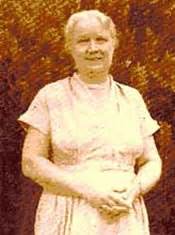A Quote by Thomas Huxley
Cosmic evolution may teach us how the good and evil tendencies of man may have come about; but, in itself, it is incompetent to furnish any better reason why what we call good is preferable to what we call evil than we had before. Some day, I doubt not, we shall arrive at an understanding of the evolution of the aesthetic faculty; but all the understanding in the world will neither increase nor diminish the force of the intuition that this is beautiful and that is ugly.
Quote Topics
Related Quotes
A good end cannot sanctify evil means; nor must we ever do evil that good may come of it. We are too ready to retaliate, rather than forgive, or gain by love and information. And yet we could hurt no man that we believe loves us. Let us, then, try what love will do: for if men do once see that we love them, we should soon find they would not harm us. Force may subdue, but love gains; and he that forgives first, wins the laurel.
The action of Pity leaps quicker than light from the highest place to the lowest to bring healing and joy, whatever the cost to itself. It changes darkness into light and evil into good. But it will not, at the cunning tears of Hell, impose on good the tyranny of evil. Every disease that submits to a cure shall be cured: but we will not call blue yellow to please those who insist on having jaundice, nor make a midden of the world's garden for the sake of some who cannot abide the smell of roses.
A good end cannot sanctify evil means; nor must we ever do evil, that good may come of it... It is as great presumption to send our passions upon God's errands, as to palliate them with God's name... We are too ready to retailiate, rather than forgive, or gain by love and information. And yet we could hurt no man that we believe loves us. Let us try then what Love will do: for if men did once see we love them, we should soon find they would not harm us. Force may subdue, but Love gains: and he that forgives first, wins the laurel.
In the story of the Creation we read: ". . . And behold, it was very good." But, in the passage where Moses reproves Israel, the verse says: "See, I have set before thee this day life and good, and death and evil." Where did the evil come from? Evil too is good. It is the lowest rung of perfect goodness. If you do good deeds, even evil will become good; but if you sin, evil will really become evil.
There are always in life countless tendencies for good and for evil, and each succeeding generation sees some of these tendencies strengthened and some weakened; nor is it by any means always, alas! that the tendencies for evil are weakened and those for good strengthened. But during the last few decades there certainly have been some notable changes for good in boy life. The great growth in the love of athletic sports, for instance, while fraught with danger if it becomes one-sided and unhealthy, has beyond all question had an excellent effect in increased manliness.
There's always the same amount of good luck and bad luck in the world. If one person doesn't get the bad luck, somebody else will have to get it in their place. There's always the same amount of good and evil, too. We can't eradicate evil, we can only evict it, force it to move across town. And when evil moves, some good always goes with it. But we can never alter the ratio of good to evil. All we can do is keep things stirred up so neither good nor evil solidifies. That's when things get scary. Life is like a stew, you have to stir it frequently, or all the scum rises to the top.
There are sacraments of evil as well as of good about us, and we live and move to my belief in an unknown world, a place where there are caves and shadows and dwellers in twilight. It is possible that man may sometimes return on the track of evolution, and it is my belief that an awful lore is not yet dead.
I do not believe that a world without evil, preferable in order to ours, is possible; otherwise it would have been preferred. It is necessary to believe that the mixture of evil has produced the greatest possible good: otherwise the evil would not have been permitted. The combination of all the tendencies to the good has produced the best; but as there are goods that are incompatible together, this combination and this result can introduce the destruction of some good, and as a result some evil.
In this world, there is no absolute good, no absolute evil," the man said. "Good and evil are not fixed, stable entities, but are continually trading places. A good may be transformed into an evil in the next second. And vice versa. Such was the way of the world that Dostoevsky depicted in The Brothers Karamazov. The most important thing is to maintain the balance between the constantly moving good and evil. If you lean too much in either direction, it becomes difficult to maintain actual morals. Indeed, balance itself is the good.
The acceptance of ambiguity implies more than the commonplace understanding that some good things and some bad things happen to us. It means that we know that good and evil are inextricably intermixed in human affairs; that they contain, and sometimes embrace, their opposites; that success may involve failure of a different kind, and failure may be a kind of triumph.
Therefore I begin to think, my Lord, you purposely allow us to be brought into contact with the bad and evil things that You want changed. Perhaps that is the very reason why we are here in this world, where sin and sorrow and suffering and evil abound, so that we may let You teach us so to react to them, that out of them we can create lovely qualities to live forever. That is really the only satisfactory way of dealing with evil. Not simply binding it so that it cannot work harm, but whenever possible overcoming it with good.
May we feel after Thee; still calling out in the darkness, as children waking in the night call "Father," so may we call out for God; and, at times, even if we do not hear Thy voice, may there be the form of a hand resting upon us, and that shall be enough; for we shall take hold of it, though it be in the dark, and it shall guide us to the growing light; for the day shall come, and the release and triumph.
We find the vast majority of people in every country believing that there will be a time when this world will become perfect, when there will be no disease, nor death, nor unhappiness, nor wickedness. That is a very good idea, a very good motive power to inspire and uplift the ignorant. But if we think for a moment, we shall find on the very face of it that it cannot be so. How can it be, seeing that good and evil are the obverse and reverse of the same coin? How can you have good without evil at the same time?




































